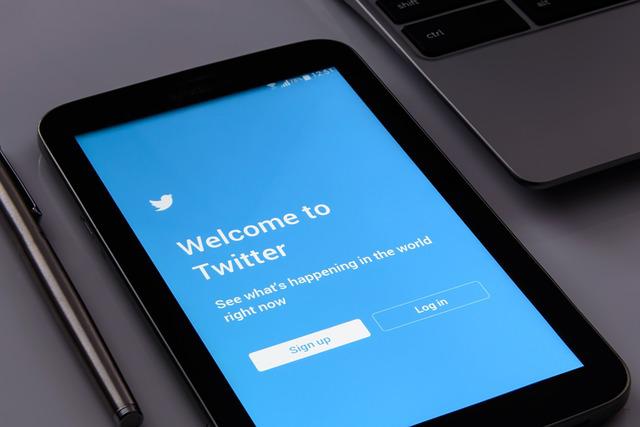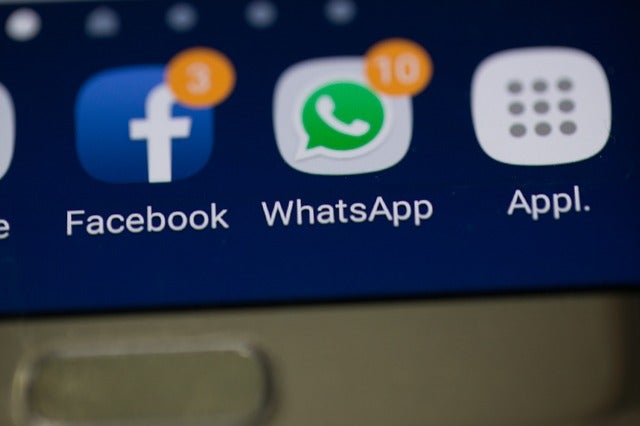
Benzinga’s weekly Stock Wars matches up two leaders in a major industry sector with the goal of determining which company is the better investment.
This week, the duel is between the two titans of the social media sector: Twitter Inc. (NYSE:TWTR) and Meta Platforms Inc. (NASDAQ:FB).
The Case For Twitter: This microblogging site was launched in 2006 as an internal service for the aggregator site Odeo. A New York University undergraduate student named Jack Dorsey was credited for coming up with the idea for Twitter, which first caught the public imagination at the 2007 SXSW conference in Austin. The company conducted its initial public offering (IPO) in 2013.
Few online platforms have made such a profound impact on daily communications as Twitter, which has reshaped the basic tenets of news broadcasting, political messaging, B2C and B2B marketing, community building among like-minded people, and the spread of joy, solemnity and malice by the most famous and least known of the planet.

Over the past week, Twitter has been at the center of the headlines when it was revealed that Tesla Inc (NASDAQ:TSLA) CEO Elon Musk became the largest shareholder in the company. Musk has amassed 81 million followers on Twitter and has been a vocal commentator on what he perceived as its vices.
Tesla invited Musk to join the company’s board of directors, albeit with certain caveats including a Q&A session with the company’s workforce, but he declined the offer. The future of Musk’s relationship with the company remains to be seen, but CEO Parag Agrawal seemed pessimistic that Musk would remain a passive observer when he said, “There will be distractions ahead, but our goals and priorities remain unchanged. The decisions we make is in our hands and no one else’s. Let’s tune out the noise, and stay focused on the work and what we’re building.”
In its most recent earnings report, the fourth-quarter data published on Feb. 10, Twitter reported revenue of $1.56 billion, up from $1.28 billion one year earlier, with operating income of $167 million and an 11% operating margin versus operating income of $252 million and a 20% operating margin in the same period of the previous year. The company’s basic earnings per share was 23 cents in the fourth quarter of 2021, down from 28 cents one year before. Looking ahead to the first quarter of 2022, the company forecasted total revenue to be between $1.17 billion and $1.27 billion, with a GAAP operating loss to be between $225 million and $175 million.
Chief Financial Officer Ned Segal used the fourth-quarter earnings call to observe that while Twitter’s advertising revenue totaled $1.41 billion, up from $1.1 billion one year earlier, its total ad engagements decreased 12% year-over-year while the cost per engagement increased 39% from fourth-quarter 2020.
“There are a variety of things that can cause these to move in one direction or another,” Segal said. “But in this case, we saw a mix shift to performance ad products, which, as you know, typically have a higher threshold to be an engagement. At a brand ad, sometimes you just need to see it for it to be an engagement whereas when there's a call to action to click through to something, the threshold is higher. And so, sometimes you can show great ads to people, and they'll be more performance-oriented, but ad engagements will go down.”
Twitter’s shares opened for trading on Wednesday at $44.88, sandwiched between its 52-week range of $31.30 and $73.34 according to Benzinga Pro.
See Also: The complete Stock Wars series
The Case For Meta Platforms: This company began in the dormitory rooms of Harvard University in October 2003 as FaceMash before becoming TheFacebook four months later — “The” was later dropped. Initially focused on Harvard students, it later spread to other universities and then permeated the wider world. When the company held its IPO in May 2012, its shares were valued at $38 each, thus pricing the company at $104 billion for what was (at the time) the largest valuation for a company transitioning into the stock exchange.
Unlike Twitter, Facebook expanded through a series of high-priced — and, for some critics of the company, highly controversial — acquisitions, including Instagram in 2012, WhatsApp and Oculus in 2014 and Giphy in 2020. The company changed its name to Meta Platforms last October and some critics felt the rebranding and the heavy marketing push led by CEO Mark Zuckerberg on the company’s newfound mania for plumbing the digital and commercial possibilities metaverse was little more than a vain attempt to distract from multiple complaints regarding how the company operated and the impact its products had on many younger users.

Earlier this week, Meta Platforms began testing tools for selling digital assets and experiences within its virtual reality platform Horizon Worlds. These will be available initially to a select group of users for creating virtual classes, games and fashion accessories within the company's immersive platform accessible via VR headsets. But while it was moving forward with its own products, it was also working aggressively to push its competition aside. Last month, news reports appeared that affirmed Meta Platforms hired a Washington consulting group to operate a stealthy public relations campaign against TikTok that depicted the social media video platform as being a threat to young people.
In its most recent earnings report, the fourth-quarter data published on Feb. 2, Meta Platforms recorded $33.6 billion in revenue, up from $28 billion one year earlier, with a net income of $10.2 billion that was down from $11.2 billion in the same period in the previous year. The company’s diluted earnings per share of $3.67 was lower than the $3.88 in the fourth quarter of 2020.
Looking ahead into the first quarter of 2022, the company forecasted total revenue to be in the range of $27 billion to $29 billion. Meta Platforms’ earnings report predicted “continued headwinds from both increased competition for people's time and a shift of engagement within our apps towards video surfaces like Reels, which monetize at lower rates than Feed and Stories,” and the company also noted it was “hearing from advertisers that macroeconomic challenges like cost inflation and supply chain disruptions are impacting advertiser budgets.”
Meta Platforms shares opened for trading on Wednesday at $214.14, sandwiched between its 52-week range of $185.82 to $384.33 according to Benzinga Pro.
The Verdict: The flippant answer to the question of which stock is the strongest would have to be: “If Elon Musk is buying Twitter, I’ll buy it, too.” Whatever mischief Musk will enact on Twitter is uncertain at this point, though his previous antics suggest that he has a rather short attention span when it comes to pursuing grand schemes — remember the hyperloop? — and any attempt at a hostile takeover would be wildly out of character for the Tesla titan.
Musk has no interest in Meta Platforms’ social media entities — and, to be cruel, so are an increasing number of young people, hence the company’s weird attempt to whack TikTok through a sneaky public relations campaign. The company also has a track record for being behind the curve on cutting-edge ideas — remember Libra? — and while the metaverse is being positioned as the next big thing, at the moment it seems like a solution without a problem (and an expensive one to be trumpeting when inflation is at a 40-year high).
The big problem with both companies could emerge after the November midterm elections. In the event that Republicans regain control of both chambers of the U.S. Congress, there will be renewed pressure on Twitter and Meta Platforms to explain their policies in censoring the free flow of news (Hunter Biden’s laptop, for example) and the arbitrary manner in which accounts are banned (Donald Trump is in digital exile but Iranian leaders who have denied the Holocaust happened are still on social media). This potential situation could be thorny for both, but especially for Twitter since many conservative activists see that company as the more dangerous of the two.
The verdict in this Stock Wars duel would be a very, very cautious nod to Twitter. While Musk has renewed its presence in the spotlight, that spotlight could be ratcheted up to broil the company when a new GOP-dominated Congress convenes in January.
All photos via Pixabay. Top photo by Thomas Ulrich; Twitter photo by Photo Mix; Meta Platforms photo by Robert Cheaib.







